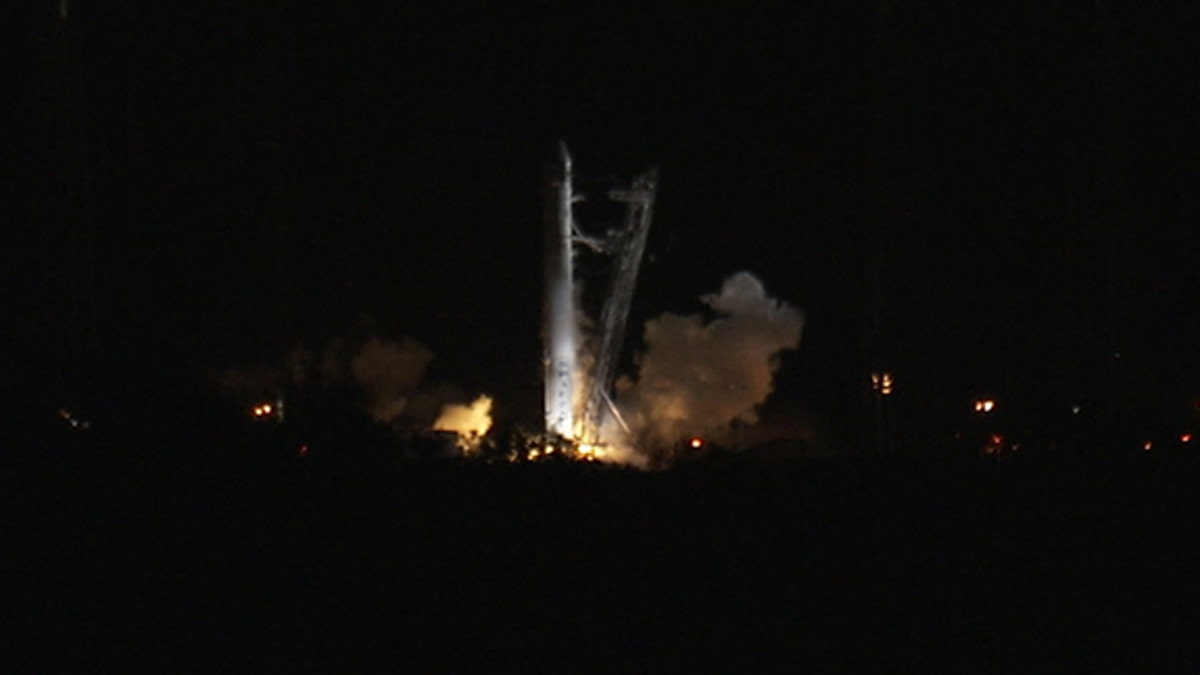
(NASA)
CAPE CANAVERAL, Fla. – SpaceX engineers have replaced a faulty engine valve on a private rocket carrying the first commercial space capsule bound for the International Space Station following the last-second abort during an attempted liftoff Saturday, May 19.
The valve replacement came after SpaceX's Falcon 9 rocket, which will loft the firm's unmanned Dragon capsule toward the station, aborted its launch attempt a half-second before liftoff from a pad here at Cape Canaveral Air Force Station. Technicians investigating the glitch discovered a faulty check valve was to blame for the high engine pressure that forced the booster's engines to unexpectedly shut down.
SpaceX engineers replaced the balky valve late Saturday, and are now inspecting the Falcon 9 rocket in preparation for a possible second launch attempt early Tuesday (May 22).
[pullquote]
"We will continue to review data on Sunday," company officials said in a statement Saturday evening. "If things look good, we will be ready to attempt to launch on Tuesday, May 22, at 3:44 A.M. Eastern."
Dragon is set to become the first non-governmental spaceship to rendezvous and berth at the space station during a mission sponsored by NASA's COTS program (Commercial Orbital Transportation Services) aimed at procuring commercial U.S. vehicles capable of filling the gap left by the retired space shuttles.
The Hawthorne, Calif.-based SpaceX (short for Space Exploration Technologies Corp.) planned to launch Dragon atop its Falcon 9 rocket Saturday, but a high pressure reading in the booster's fifth engine caused a last-second abort.
"We had a nominal countdown right until about T minus 0.5 seconds," SpaceX president Gwynne Shotwell said during a news briefing following the abort. "Software did what it was supposed to do, aborted engine five, and we went through the remaining engine shutdown."
Technicians went out to the rocket's launch pad at the Air Force station's Complex 40 Saturday to examine the engines for signs of the issue's root cause.
"During rigorous inspections of the engine, SpaceX engineers discovered a faulty check valve on the Merlin engine," officials said in the statement.
The robotic Dragon capsule is due to deliver food, clothes, science equipment and other supplies to the space station when it arrives.
The mission is the final test flight scheduled for SpaceX before it can begin running regular delivery missions to the outpost. The company is contracted to fly at least 12 of these for NASA at a total price tag of $1.6 billion.







































